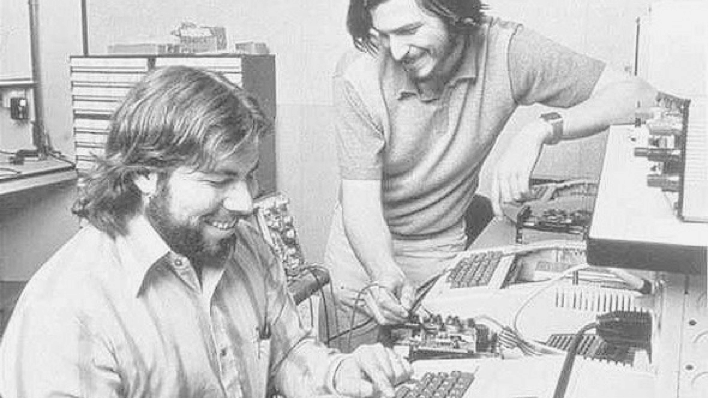In this article, we’ve demystified Internet Computers, providing a straightforward guide to this transformative technology. Internet Computers, or IC, are a global, decentralized network that allows developers to build secure, scalable, and efficient applications and services. We’ve outlined the key components, including canisters, Internet Identity, and smart contracts. The article explains how the IC works through a consensus mechanism and highlights its advantages, such as enhanced security and reduced maintenance. This technology aims to make the internet more open and accessible to all, promising to revolutionize how we interact with the digital world.
Introduction
The Internet Computer is a revolutionary technology that has gained momentum in recent years, promising to transform the way we interact with the internet. But what exactly is an Internet Computer, and how does it work? In this article, we will break down the concept of Internet Computers in easy-to-understand terms, helping you grasp the fundamental concepts behind this innovative technology.
What is an Internet Computer?
Imagine a computer that exists not as a physical device sitting on your desk, but as a global, decentralized network. The Internet Computer, also known as the “IC,” is precisely that: a massive, decentralized computer network that extends the capabilities of the internet itself. It allows developers to build and host applications, websites, and services on this network, making them highly secure, scalable, and efficient.
Key Components of Internet Computers
To understand Internet Computers better, let’s explore the core components:
1. Canisters
In the Internet Computer ecosystem, data and code are organized into entities called “canisters.” Canisters are like secure containers where code and data reside. They are highly isolated and can interact with each other, making it easy to build complex, interconnected applications.
2. Internet Identity
Internet Computers introduce the concept of “Internet Identity,” which aims to simplify how you log in to websites and applications. With Internet Identity, you can use a single, secure identity across multiple services without the need for traditional usernames and passwords.
3. Smart Contracts
Smart contracts are self-executing agreements with the terms of the contract directly written into code. They are crucial for automating various processes and transactions on the Internet Computer.
How Does it Work?
The Internet Computer operates using a unique consensus mechanism called the “Internet Computer Protocol” (ICP). This protocol combines a decentralized network of node machines, each running the same software, to execute code and store data. Here’s a simplified explanation of how it works:
1. Node Machines
A global network of node machines is responsible for running the Internet Computer. These nodes work together to validate transactions, execute code, and maintain the network’s integrity.
2. Canisters
Developers deploy their applications and services in canisters, which are distributed across the network. Canisters are secure, isolated entities that ensure data privacy and code integrity.
3. Interconnected Canisters
Canisters can interact with each other and exchange data seamlessly, enabling the creation of complex applications and services.
4. Decentralization
Unlike traditional cloud computing, the Internet Computer is decentralized, reducing the risk of single points of failure. This ensures the network remains highly available and resilient.
Advantages of Internet Computers
Internet Computers offer several benefits:
1. Security
With its strong emphasis on secure canisters and cryptography, Internet Computers are inherently more secure compared to centralized alternatives.
2. Scalability
Developers can build scalable applications that automatically adapt to changing demand, thanks to the network’s distributed architecture.
3. Reduced Maintenance
The Internet Computer takes care of infrastructure management, reducing the burden on developers and operators.
4. Openness and Fairness
The Internet Computer aims to democratize the internet, making it more open and accessible to all.
Use Cases of Internet Computer
The Internet Computer (IC) has proven its versatility with a wide range of real-world applications across various industries. Here are some key use cases:
1. Decentralized Finance (DeFi)
IC serves as an ideal platform for DeFi applications, providing users with secure and trustless financial services. It enables lending, borrowing, and trading without the need for traditional banks, offering transparency and reduced transaction fees.
2. Social Media
Social media platforms built on IC can grant users more control over their data and privacy. Decentralized identity and data management allow users to interact online while maintaining ownership of their personal information.
3. Decentralized Internet Services
IC can host websites, web applications, and services, offering an alternative to traditional web hosting. This results in censorship-resistant, highly available websites without relying on centralized servers.
4. Supply Chain and Logistics
IC’s transparency and efficiency make it suitable for tracking products and goods in the supply chain. Smart contracts automate processes, enhancing real-time visibility, reducing errors, and preventing fraud.
5. Decentralized Autonomous Organizations (DAOs)
IC hosts DAOs, organizations governed by code and smart contracts. Members can participate in decision-making and management without central authority, promoting democratic governance and transparency.
6. Gaming and NFTs
Blockchain-based gaming platforms and NFT marketplaces thrive on IC. Gamers enjoy asset ownership and unique NFTs with IC’s security and scalability.
7. Education and E-Learning
E-learning platforms can leverage IC for secure, transparent, and user-centric educational experiences. Decentralized identity and credential verification ensure the integrity of certificates and qualifications.
8. Healthcare and Medical Records
IC enhances the security and accessibility of medical records. Patients gain control over their health data, securely sharing it with healthcare providers and researchers.
9. Content Sharing and Streaming
IC enables content creators to distribute and monetize their content without relying on centralized platforms. This fosters direct relationships between creators and consumers.
10. Government and Public Services
Governments explore IC for more secure and transparent public services, including voting, identity management, and public records. Decentralized systems reduce the risk of fraud and promote trust in government services.
These use cases demonstrate the IC’s capacity to bring decentralization, security, and control to various sectors, ushering in a new era of innovation and empowerment for users across the digital landscape.
What to Expect?
The future of the Internet Computer (IC) holds immense potential, and it’s likely to see significant developments in several key areas:
- Broader Adoption: As more developers and organizations become familiar with the IC and its benefits, we can expect broader adoption across various industries. This increased adoption will lead to a more extensive and diverse ecosystem of applications and services.
- Blockchain Integration: The IC can work in tandem with existing blockchain technologies. Integration with other blockchains, such as Ethereum, can create a more interconnected and powerful decentralized ecosystem.
- Improved Scalability and Performance: Continuous advancements in IC technology will likely result in improved scalability and performance. Faster transaction processing and more efficient use of computing resources will be key goals for development.
- Enhanced Interoperability: The IC may evolve to provide better interoperability with traditional internet technologies, allowing for a smoother transition for developers and users. This could result in seamless cross-platform interactions.
- Wider Use in DeFi: DeFi applications on the IC could become more prominent, offering decentralized financial services and tools that rival or complement traditional banking services.
- Decentralized Identity: The IC’s focus on Internet Identity can lead to more widespread adoption of secure, user-centric digital identities, reducing reliance on usernames and passwords.
- Government and Public Services: Governments may embrace the IC for a wide range of applications, including secure voting systems, public records management, and transparent public services.
- Expansion of Decentralized Autonomous Organizations (DAOs): DAOs, governed by smart contracts, could become a standard method for organizing and governing a wide range of activities, from businesses to non-profit organizations.
- Education and Healthcare Transformation: The IC can significantly impact education and healthcare by providing more secure, transparent, and user-centric platforms. Credential verification and medical record management could be revolutionized.
- NFT Ecosystem Growth: The IC could see the expansion of NFT (Non-Fungible Token) marketplaces, offering more opportunities for creators and artists to tokenize their digital assets.
- Cross-Border Transactions: The IC can facilitate cross-border transactions and international trade, providing a more efficient and secure way to conduct global business.
- Environmental Sustainability: Future development might focus on making the IC more energy-efficient and environmentally sustainable, aligning with the growing focus on green technology and sustainability.
- Privacy and Security: Ongoing improvements in security and privacy will remain a central concern, as the IC aims to offer a safer online experience.
- User Empowerment: A central theme in the future of the IC is the empowerment of users. The IC can provide individuals with more control over their data, online interactions, and digital identities.
- Global Impact: The IC has the potential to transform how people around the world access and interact with digital services, reducing barriers to entry and creating opportunities for underserved populations.
In summary, the future of the Internet Computer holds exciting possibilities in terms of innovation, decentralization, and user empowerment. As technology continues to evolve, the IC is likely to play a central role in reshaping the way we engage with the digital world.
Conclusion
The Internet Computer is poised to revolutionize the way we use the internet. It offers a decentralized, secure, and scalable platform for building and hosting applications and services. By breaking down complex concepts into understandable terms, we hope this article has given you a better grasp of Internet Computers and their potential to reshape the digital landscape. As this technology continues to evolve, keep an eye out for the exciting innovations that will surely emerge from this transformative platform.

Campoal - No.1 Petition & Fundraising WordPress Theme
Campoal is a perfect WordPress theme to create the petition platform with fundraising. Where anyone can be start a social movement, collect supporters and raise funds to change something in society.
Related Articles

The best way to create an online petition website

